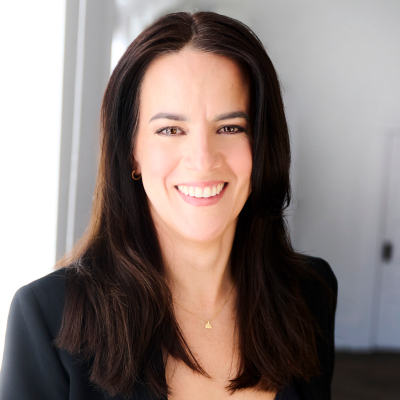Let’s not sugarcoat it: Divorce can destroy wealth. And high-conflict divorce? It can obliterate it.

Among high-net-worth families, the dissolution of a marriage is rarely just a personal matter. It becomes a business event—one with legal exposure, reputational risk, governance disruption, and, all too often, multi-million-dollar professional fees.
And despite this, many couples continue to operate under the illusion that the harder they fight, the more they’ll keep.
Advisors know otherwise.
In Canada, a relatively straightforward divorce can cost between $15,000 and $30,000. But once you introduce complexity, such as multiple corporations, real estate and trust structures, that number climbs quickly. In many cases I’ve seen total professional fees exceed $500,000 to $1 million per spouse. And that’s just for the lawyers. Add in all the other experts and the costs escalate into the millions.
Here’s the part no one wants to say out loud: I’ve seen couples spend hundreds of thousands of dollars, burning through years of energy, dignity and peace of mind, and after all that time, they’re still just as married as the day they actually liked each other. Only now they’re exhausted, bitter and far poorer for the experience. The professionals are paid. The damage is done. And the divorce? Still pending.
“The cake is only so big, and it gets shrunk by professional fees.” That’s a truth I repeat often, because it’s astonishing how quickly people lose perspective when emotion hijacks logic. Once litigation begins, the legacy starts leaking through the cracks.
Imbalance between spouses
Too often, it begins with imbalance. In many families, one spouse manages the wealth while the other defers. That dynamic may work during the marriage, but it becomes deeply problematic during a separation. Less-informed spouses suddenly find themselves overwhelmed—disoriented, mistrusting and forced to assemble an army of experts just to understand what they’re entitled to. That gap creates fear. Fear fuels conflict. And conflict costs money.
This is why advisors must be firm in encouraging shared financial literacy within the household. If both parties understand the structures, the stakes and the strategy before a crisis hits, there’s a far greater chance that a divorce won’t implode the system.
And let’s be clear: The most damaging fights aren’t about money, they’re about what the money symbolizes. High-conflict divorces in wealthy families often stem from identity, resentment and legacy. For some, wealth represents recognition: “I built this, and I’m not handing it over.”
For others, it’s validation: “I gave up my career to support this life, and now I’m being erased.” These aren’t spreadsheets, they’re emotional narratives. And when those stories are left unresolved, divorce becomes the battleground.
This is why the advisor’s role is so critical. We are often the only professionals in the room who understand the full financial landscape and the relational dynamics. We may not be the ones drafting agreements or litigating claims, but we are the ones who can anchor the conversation in reality before it spirals.
What can advisors do?
First, encourage alternatives early: Mediation, collaborative divorce and arbitration aren’t just cheaper, they’re more private, faster and more conducive to long-term healing, particularly in families where business or philanthropy continues post-separation.
Second, frame the divorce as a strategic restructuring, not a war: Help the client move from, “What am I owed?” to “What do I need to protect?” This subtle shift reframes the conversation and can dramatically reduce escalation.
Third, assemble a multidisciplinary team before the litigation lands: That includes legal counsel, tax professionals, corporate advisors, insurance planners and, where appropriate, family therapists or governance consultants.
And finally, don’t forget the children, especially the adult children: In high-net-worth separations, they’re often caught in the crossfire of divided loyalties and disrupted succession plans. The emotional damage is compounded when governance and ownership overlap with unresolved family conflict.
Watch for red flags
Advisors should listen carefully when clients say things like:
- “I don’t care what it costs—they’re not walking away with this.”
- “They don’t deserve it.”
- “I want to make them pay.”
These aren’t just emotional outbursts; they’re red flags. And they require immediate reframing, because no number of court victories can compensate for a gutted estate, a fractured board or children who never speak again.
High-conflict divorce is usually a failure of structure, not just a failure of love. And structure is what family office professionals are uniquely positioned to provide—before, during and after a separation.
Because, in the end, what matters isn’t who “wins.” It’s whether the legacy survives.
Other articles in the High Costs of Divorce series by Elke Rubach:
- What we can learn from high-profile couples who have split
- Children in the crossfire: What HNW divorce does to heirs and the next gen
- Staying married for the kids? Decisions borne of fear are dangerous to all
- Divorce-proofing a client’s legacy: Why every family office needs a plan
Elke Rubach is a Certified Financial Planner with CLU and MFA-P designations. Her expertise lies in optimizing income and tax efficiencies, achieving cohesiveness in financial and estate plans, and providing ongoing asset management strategies that foster wealth accumulation and growth. Elke is a reformed lawyer who earned her graduate degree in law, with a focus on banking and finance, at the London School of Economics, where she studied on a Chevening Scholarship. She worked as an associate at the London (U.K.) and Toronto offices of the law firm McCarthy Tetrault. During a stint in banking, Elke observed the life-changing impact of good financial advice and decided to switch to a career in financial planning and wealth management. She founded Toronto-based Rubach Wealth in 2012. Today, Elke is a sought-after speaker on wealth management, estate planning and philanthropy. She’s the founder of Fashion Heals for SickKids, which has raised more than $500,000 for pediatric cancer care and research since 2016. She also gives back with board and volunteer commitments with the Professional Advisory Council for SickKids Foundation, the Investment Committee at the Office of the Public Guardian, the advisory board for Transpod Inc., and the board of Ronald McDonald House Charities in Toronto.
The Canadian Family Offices newsletter comes out on Sundays and Wednesdays. If you are interested in stories about Canadian enterprising families, family offices and the professionals who work with them, but like your content aggregated, you can sign up for our free newsletter here.
Please visit here to see information about our standards of journalistic excellence.



